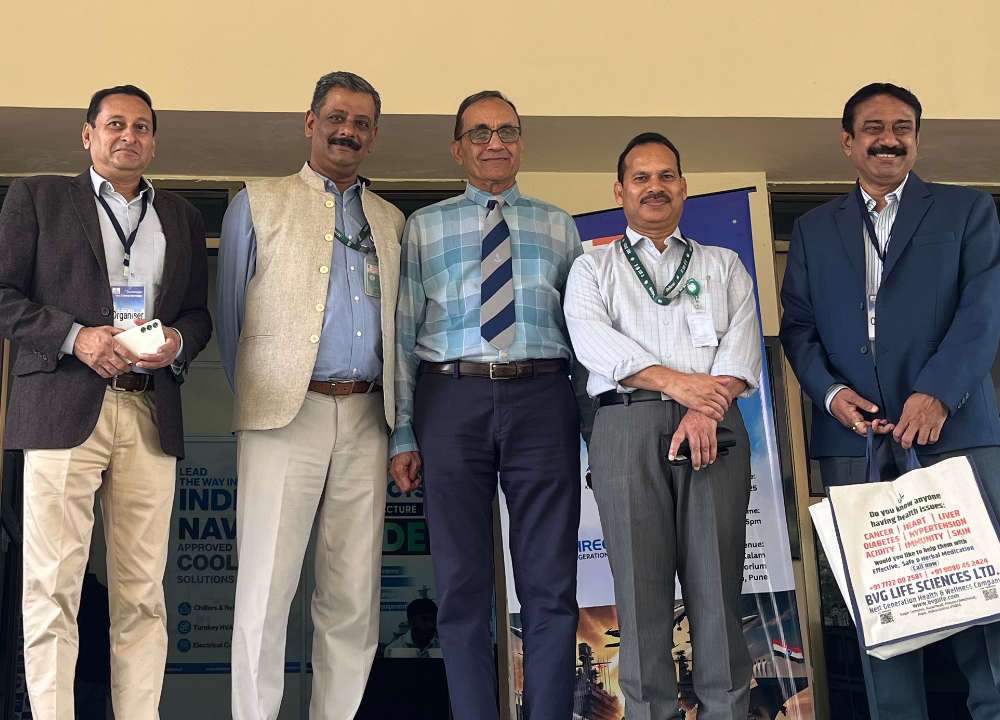The world of manufacturing is undergoing significant transformations, and Indo-German collaborations play a pivotal role in shaping this dynamic landscape. At EMO Hannover 2023, in a candid conversation with Rajesh Nath, the Managing Director of VDMA India, Hari Shanker, Managing Editor of Machine Maker, explored the evolving dynamics of Indo-German manufacturing ties, and the growing bilateral trade.
India’s emergence as the 5th largest machine tool manufacturer highlights the nation’s growing significance in manufacturing. But at EMO Hannover 2023, the participation from the sub-continent was a little, but there is a trend where one can see these numbers growing year after year. “There is a lot of cost involved, and participating in EMO Hannover takes a lot of planning. Apart from the cost of setting up the stall, an Indian company must also look at travel expenses and perhaps one of the most significant barriers – the high cost of accommodation, which can soar to almost €400 per night”, shared Rajesh Nath.
Navigating Manufacturing Challenges in Europe
The European manufacturing sector, which has long been synonymous with innovation and excellence, is currently navigating a slowdown. As Rajesh Nath mentioned, this deceleration has its complexities. Several factors contribute to this challenging landscape. First and foremost, the world is still grappling with the aftermath of the COVID-19 pandemic, which has disrupted global supply chains. Rajesh states, “Supply chain disruptions still haven’t been fully sorted out.” This lingering uncertainty affects the manufacturing world, from raw material prices to the availability of skilled manpower. One of the critical challenges is the need for more skilled workers, a problem that plagues many industries. Rajesh says, “Shortage of manpower is one of the highest risk factors that the companies are facing in Germany.”
Furthermore, the evolving trade dynamics with China have also significantly impacted Europe. The once-booming Chinese market for German companies has shrunk, leading to declining exports to China. While Indian exports have increased, they haven’t been able to offset the decline in exports to China fully. The uncertainty prevailing in the European engineering sector highlights the importance of diversified collaborations and partnerships. Despite these challenges, the future holds potential, and Rajesh expresses hope that 2024 will bring improvements. Such improvements hinge on global collaboration, knowledge sharing, and the resiliency of the manufacturing industry.
India’s Decade: Growing Indo-German Bilateral Trade
The conversation reveals a heartening aspect of Indo-German relations – the growth in bilateral trade. “The fact that the VDMA President is visiting India, the first visit in five years, showcases the confidence that the German industry has in India”, shared Rajesh. The bilateral trade between the two nations has been on an upward trajectory. In 2022 and 2023, there was an 18% increment in Indo-German trade. This trend is anticipated to continue with an expected increment ranging from 15% to 20%.
The Indo-German relations highlights the mutual benefits of global collaborations. German companies are looking to invest in India, source from India, and collaborate with Indian firms. This spirit of cooperation exemplifies the potential for growth and the recognition of India as a valuable market. It aligns well with Rajesh’s assertion that India is poised to experience a decade of substantial growth, making it “India’s decade.”
Empowering Indian MSMEs
The Indian MSMEs form the backbone of the nation’s industrial landscape. How can these Indian MSMEs be empowered and brought to the forefront of global manufacturing? The answer lies in technology adoption, collaboration, and changing the culture of Indian manufacturing. VDMA India, under the leadership of Rajesh Nath, is taking critical steps to support Indian MSMEs. They organise technology-related events and seminars where German companies share their expertise and technology. This not only provides Indian MSMEs with the opportunity to learn about the latest developments but also to connect with the German industry.
Rajesh points out, “It’s going to be a win-win situation,” indicating that the collaboration benefits both sides. It creates a platform for Indian companies to understand and adopt advanced technologies, facilitating their growth and global competitiveness. Moreover, technological collaborations between Indian entrepreneurs and German industries are encouraged. This signifies the potential for Indian companies to tap into German expertise, further enhancing their capabilities and global reach.
Despite challenges in the European engineering sector and global uncertainties, the potential for Indian MSMEs to embrace German technology and the growth in bilateral trade paint a promising future. Collaboration, technology exchange, and the empowerment of Indian MSMEs have the potential to transform India into a global manufacturing hub. It’s a vision and a tangible journey toward creating a dynamic and competitive global manufacturing landscape, with Indo-German relations at its core.








